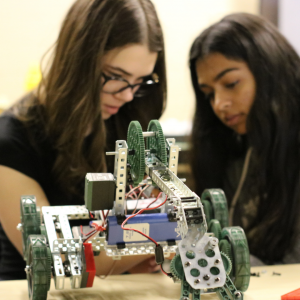Coding, robotics curriculum resumes at SA colleges
The Division of Fundamental Training (DBE) is resuming SA’s coding and robotics curriculum pilot, which it halted as a result of disruption in studying brought on by the COVID-19 pandemic.
So stated DBE spokesperson Elijah Mhlanga in a telephonic interview with ITWeb.
The pandemic noticed colleges being closed throughout the laborious lockdown, and colleges later applied rotational timetables, which additionally impacted studying.
“The trial implementation began early this yr, as colleges returned to full capability, however we’re going to begin the place we left off in 2020, with the intention to re-orientate lecturers and re-activate the system,” Mhlanga stated.
The pilot might be applied at 25 000 colleges that encompass about 14 million learners and 420 000 lecturers, he famous.
“It should take time, as we have to present coaching in all of the districts.”
To handle SA’s essential abilities hole, authorities has made concerted efforts to extend abilities growth and competencies to arrange learners for the fourth industrial revolution.
Consequently, on the finish of 2017, the division began a framework to introduce coding and robotics as a obligatory topic in all colleges.
In response to the annual efficiency plan 2022/2023, which was launched by the division just lately, the full-scale implementation for Grade R to Grade 3, and Grade 7 is deliberate for the educational yr 2023.
For different grades from 4 to 9, the 2 topics of robotics and coding might be on the pilot from 2022 to 2023, and full-scale implementation in these grades might be seen between 2024 and 2025.
The DBE notes that as coding and robotics is a brand new initiative, the main target might be on the upskilling of lecturers to be skilled to show this new topic in collaboration with increased training establishments.
Mhlanga identified the DBE might be working hand-in-hand with universities, equivalent to UNISA and the College of Johannesburg, to supply learners with digital abilities, as some colleges do not have the wanted gear.
He inspired universities to assist in making a platform for learners to achieve information and sensible expertise in coding and robotics.
“The brand new curriculum might be taught by current lecturers after they’ve been skilled. The division will guarantee colleges are outfitted to show coding and robotics as a topic, and that every one gear and computer systems might be in a secure and safe setting,” he added.
“Regardless of the challenges that we face, equivalent to load-shedding and theft in our colleges, we’re optimistic that we’ll discover options in order that we don’t compromise the learners’ future, as we’re additionally decided to arrange the learners for the digital period.”
Moira de Roche, non-executive director of the Institute of IT Professionals SA and chairperson of IFIP Worldwide Skilled Follow Partnership, is of the view that studying to code helps the learner to assume logically and develop cognitive talents.
“Combining coding with robotics permits learners to provide one thing they’ll simply see working (the robotic), thus making the topic related and enjoyable,” she says.
“Hopefully, within the subsequent 5 years, we’ll see know-how used to essentially improve training. This requires a big mindset change, however it is going to revolutionise studying as a result of it is going to create a real-life setting the place individuals study. It’s necessary to keep in mind that know-how develops exponentially, however people are solely capable of assume linearly.
“If we don’t speed up the uptake of applied sciences for studying: what we train and the way we train it, we’ll at all times be behind the curve, however the hole will develop.
“I imagine the DBE and provincial training departments ought to interact with know-how futurists to get an understanding of what the world will appear like in 5 to 10 years. In the event that they don’t, they are going to ship studying for a world that doesn’t exist,” De Roche concludes.




